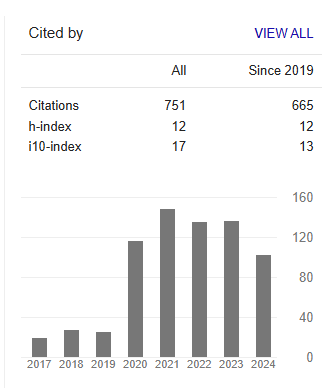Assessment of Pharmacists Knowledge, Attitude and Practice of Male Partner Inclusion in Postnatal Pharmaceutical Care Delivery
Abstract
Bilkisu Mohammed Kuchazi, Abraham Mainaji Amlogu and Jane Osareme Ogugua
The postnatal period is crucial to the lives of mother and child but remains the most neglected time for providing high quality treatment. Providing pharmaceutical care during the postnatal period offers valuable benefits for the health and well-being of both the mother and child. Involving male partners of nursing mothers in providing such care will create a beneficial synergy of care with positive results. This is attributed to the significance of male partners in households with nursing mothers, often serving as family heads, and the importance of pharmacists as crucial members of the healthcare system. Gathering insights on the knowledge, attitudes, and practices (KAP) of pharmacists concerning the inclusion of males’ partners in delivering pharmaceutical care to nursing mothers is crucial for formulating future health action strategies and plans.
A mixed method research was conducted. This included a cross-sectional study among 211 pharmacists working in hospital pharmacies using online google questionnaires. Complimentary qualitative research was conducted where 14 pharmacists were interviewed using in-depth semi-structured interviews. A correlation test was used for analysing KAP scores.
Results indicate pharmacists across all demographics have adequate comprehension of the benefits of male partner inclusion in postnatal pharmaceutical care delivery. Female pharmacists are skeptical about their ability to persuade men to get involved in care and are more interested in receiving additional training and development to provide care. Results also show variations in practice across all demographics attributable to the challenges faced by pharmacists in practice.
Continued professional development for pharmacists should include training on strategies for involving men in the pharmaceutical care delivery for postnatal patients. Policy makers should recognize the importance of compulsory inclusion of male partners in provision of such care.



